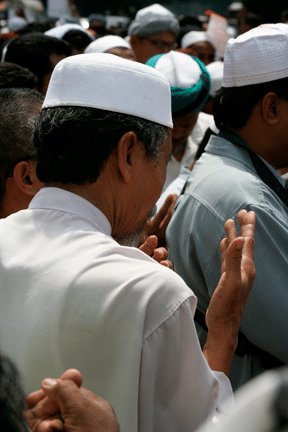Related Articles
Point/Counterpoint
Point: A Muslim-born Pastor’s Response to a 2009 Insider’s Conference by Jonathan McNeil. Counterpoint: Asking Questions: A Response to Jonathan McNeil by Kevin Higgins
Let’s Leave Shahada to Real Muslims
I write as a follow up to Gene Daniel’s important contribution on shahada confession, which appeared in the July 2014 issue of EMQ. The author notes that among Christian missionaries “there is disagreement about whether a believer in Christ can, with a clear conscience, say the second half, that Muhammad is his [God’s] messenger.”
Muslim World Still Looks Like Impregnable Fortress
An expansion of Islam in North America is an illustration of the challenge which this great religious system represents to Christians around the world today.
Welcoming the Stranger
Presenter: Matthew Soerens, US Director of Church Mobilization, World Relief Description: Refugee and immigration issues have dominated headlines globally recently. While many American Christians view these…


